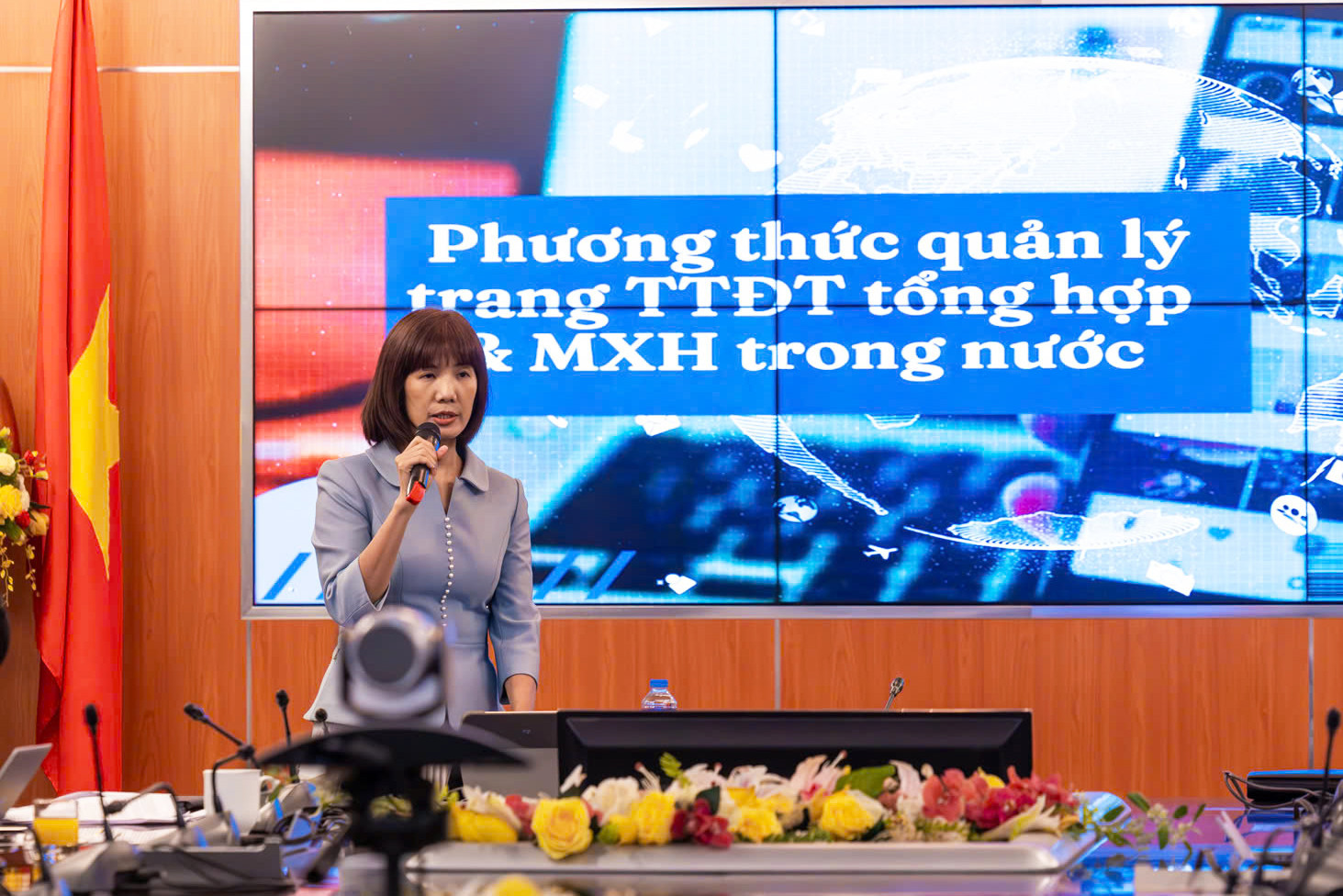This regulation is part of Decree 147/2024/NĐ-CP, issued on November 9, which governs the management, provision, and use of internet services and online information.
The decree was highlighted on November 28 at the Ministry of Information and Communications (MIC) conference, reviewing the electronic information sector’s performance in 2024 and outlining directions for 2025.

Decree 147 introduces stricter rules for managing licensed electronic information websites and social media platforms. Only licensed platforms are permitted to offer livestream services or engage in revenue-generating activities.
Nguyen Thi Thanh Huyen, Deputy Director of the Authority of Broadcasting and Electronic Information (ABEI), explained that licenses are issued for a maximum of five years based on the applicant’s proposal. Licensed platforms must report monthly user statistics and traffic volumes to the MIC.
To enhance oversight, the MIC will deploy tools to monitor traffic on licensed platforms and aggregate websites. Platforms with significant user activity will be required to undergo additional licensing procedures. Licensed platforms will also receive a unique identification code to display on their websites or apps, linking directly to the licensing authority’s database.
The decree aims to address “media mimicry,” where non-journalistic entities impersonate legitimate news outlets. Key measures include:
Aggregate websites can only publish content delayed by at least one hour and must source news from at least three authorized journalism agencies.
Websites with links to online newspapers are limited to specific topics, with linked content not exceeding 50% of total articles within a month.
Aggregate websites cannot use domain names or page titles resembling media outlets and must prohibit user comments on news content.
Social media platforms are barred from categorizing user-generated posts into fixed sections or publishing investigative-style articles, reports, or interviews.
Huyen emphasized that journalistic organizations remain responsible for the content shared on affiliated aggregate websites. Staff at these websites are prohibited from identifying themselves as journalists or reporters.
Organizations and businesses outside journalism must avoid using domain names or page titles that could cause confusion with legitimate media entities.
Decree 147 outlines detailed responsibilities for social media users:
Users are accountable for all content they create, store, transmit, or share online.
Users conducting business or generating revenue on social media must comply with industry-specific regulations, tax obligations, and payment requirements.
Social media account holders, groups, and fan pages are prohibited from using names resembling media outlets.
If a user reports violating content, the platform must act within 48 hours. If authorities issue a directive, the response time is reduced to a maximum of 24 hours.
Additionally, users cannot exploit social media platforms to create journalistic-style content, such as investigative reports or interviews. Livestream activities must adhere to Decree 147’s regulations and tax compliance rules.
Trong Dat